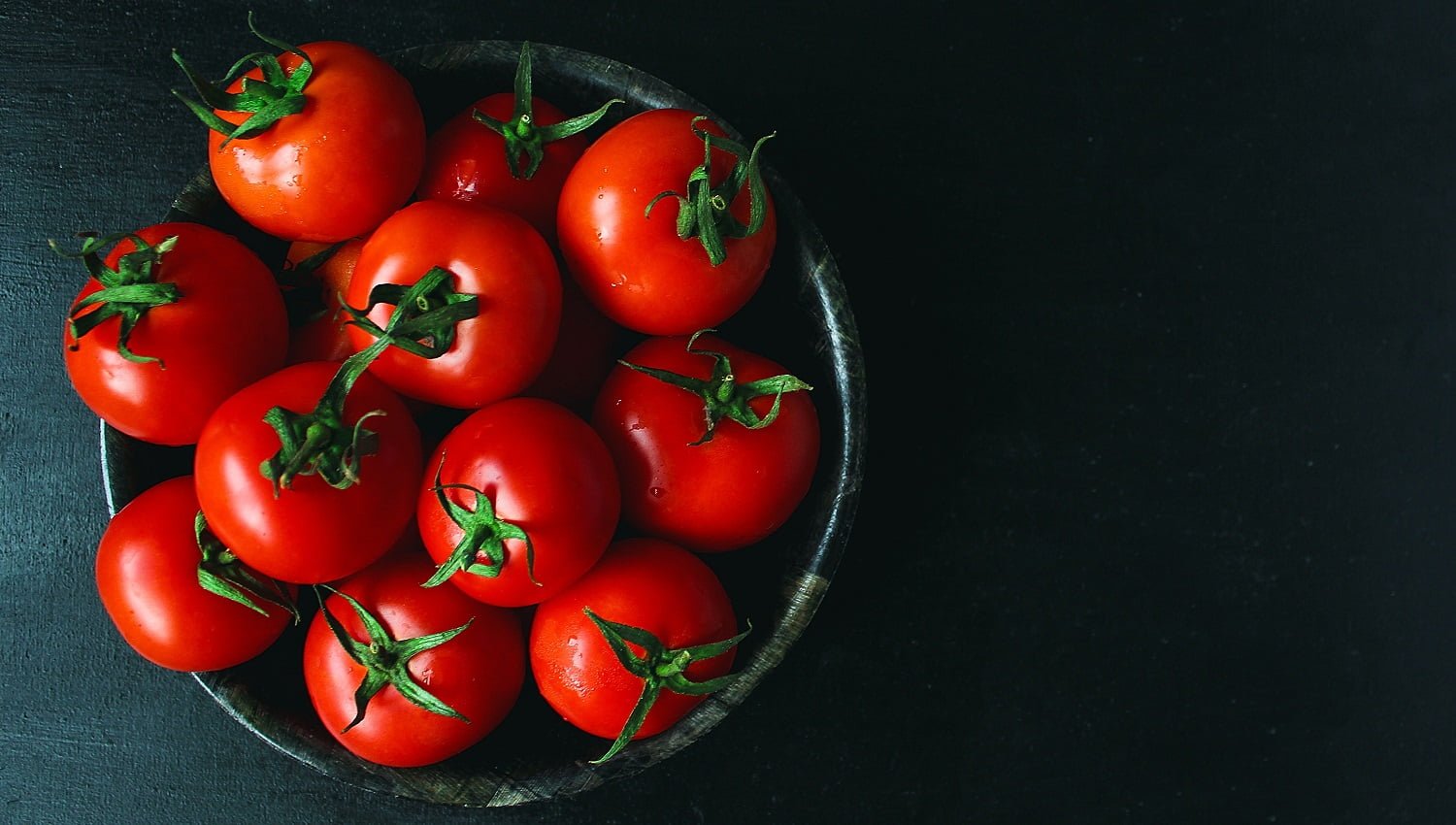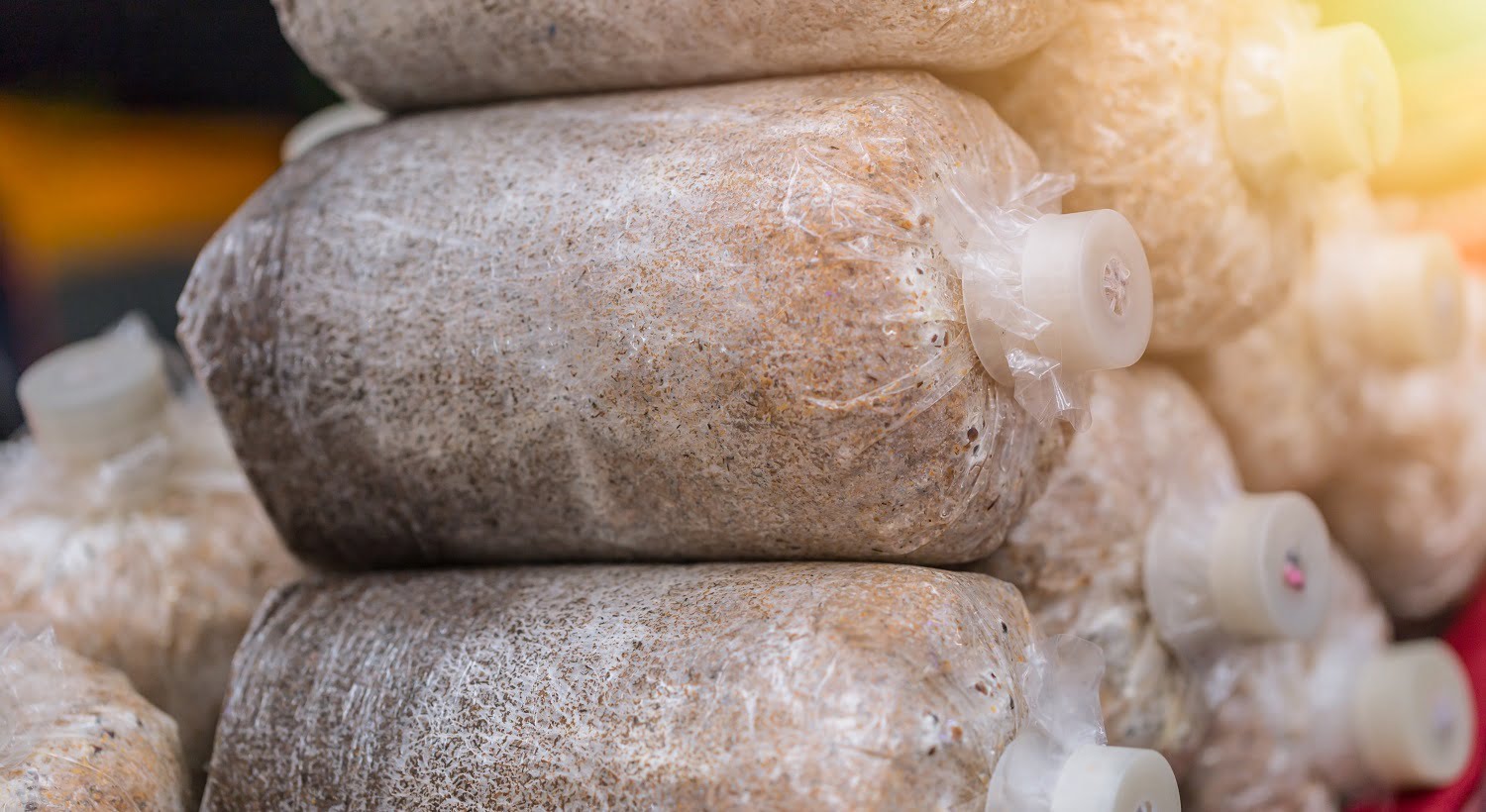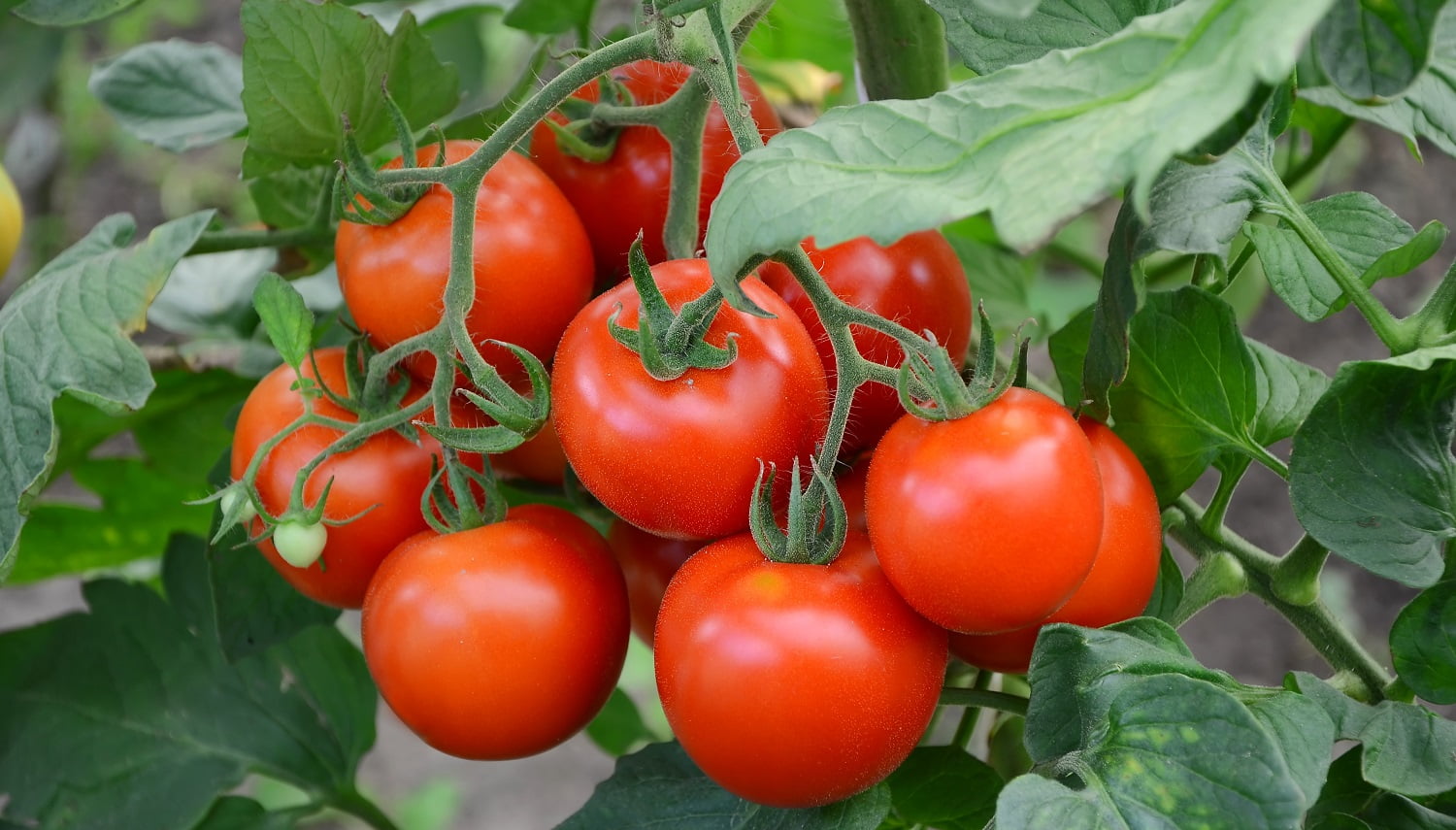Be it a pro or a beginner, every gardener seeks the best methods to improve plant growth.

Now, there are a ton of products available in the market, promising desired results, but most don’t live up to our expectations. And the others instill in us the fear of chemicals seeping into the garden’s produce.
Understanding your plight, we’re here to introduce you to a safer alternative to these products. Mushroom compost is one of the most widely used types of soil amendments that’s capable of fulfilling every gardener’s needs.
But is it good for tomatoes? Here’s where you’ll find out.
After spending hours on research, we’ve managed to create this informative guide, which provides relevant information about the use of mushroom compost in growing tomatoes. Furthermore, we’ve highlighted the common problems associated with tomato plants followed by the benefits of mushroom compost.
So, without further ado, let’s begin!
What Is Mushroom Compost?

Before coming to the conclusion of whether or not mushroom compost is good for tomatoes, it makes sense to get to know its composition. Let’s start by tackling the common misconception that mushroom compost comprises real mushrooms as its primary ingredient.
It’s rather a combination of organic materials, such as peat moss, hay, hulls, chicken manure, corn cobs, and others. However, the ingredients used to make mushroom compost may vary, depending on the source. And the desired output is obtained after each component is estimated and thoroughly combined.
That said, making this compost is as simple as soaking finely cut straw in water. A mix of the organic materials is combined with the straw and then placed in the hot compost pile for around 30 days. The straw serves as structure and food to bacteria, while the chicken manure, urea, and peat moss provide the required nutrients.
With bacteria thriving, the heat rises to more than 160 degrees, which, in turn, kills any pathogen or weed seed present in the straw. Consequently, after several weeks of moistening and turning, the pile darkens, indicating that the mushroom compost is ready to use.
The compost can then be used as an amendment to enrich the soil, raise its pH value, and retain moisture. It’s also widely used in commercial mushroom facilities to grow crops and later sold to landscaping businesses, agricultural businesses, and farm co-ops for resale.

Is Mushroom Compost Good For Growing Tomatoes?
By now, you’re well aware of mushroom compost, its ingredients, and the chemical process involved in its formation. So, it’s time we answered the most crucial question forming the foundation of this guide - is mushroom compost good for tomatoes?
Without beating around the bush, using this compost type to grow tomatoes can definitely prove to be beneficial. It’s rich in several minerals and nutrients that are crucial for the growth and development of the tricky fruit.
On that note, let’s discuss the common problems associated with growing tomatoes before highlighting the benefits of using mushroom compost to eliminate the issues.
Problems Associated With Growing Tomatoes
It’s not easy to grow tomatoes since they’re prone to diseases. But interestingly, the common problems faced by tomato plants can be addressed by mushroom compost as well.
This section will help you identify the plant disease and its cause so that it’s tackled no later than it appears.
-
Blossom End Rot
Lack of sufficient water or calcium leads to dark blotches at the end of your tomato plant, commonly known as blossom end rot. It may also be caused by a lack of calcium in the soil, contributing to soil dry-out.
The use of mushroom compost helps retain enough water for the plant. Plus, it adds nutrients and minerals like calcium to the soil to overcome this problem.
-
Tomato Blight
Most varieties of tomatoes are resistant to tomato blight, but a few variants, commonly grown in regions with wet climates, are susceptible to this problem. So, if you notice the fruits and leaves of your plant rotting prematurely, try spraying liquid mushroom compost. It acts as an excellent aid for protecting the tomato plant.
-
Mold
Yellow patches on the leaves of the plant are an indicator of leaf mold. It contributes to the loss of tomatoes, so try growing a plant variant that’s naturally mold-resistant and make sure you keep the area ventilated.
Of course, the use of mushroom compost as mulch is another excellent way of addressing this issue. It helps the plant resist mold and kills pathogens in the soil.

Benefits Of Using Mushroom Compost For Growing Tomatoes
As you already know, mushroom compost is a proven type of soil amendment used for mushroom cultivation. It’s rich in nutrients and helps tackle common problems like mold, blossom end rot, and tomato blight, allowing tomato plants to thrive well.
Here we’ll be listing and discussing a few more reasons why using mushroom compost is beneficial for the growth of tomatoes.
-
Early Growth-Stage Protection
Mushroom compost is not only rich in minerals like calcium, but it also increases the soil’s alkaline content in the early growing stages of your plant. As such, it protects the crop from diseases from the get-go.
-
Food For Plants
When compost is laid as mulch or mixed with the garden soil, nutrients are slowly released to serve as food for your hungry tomato plants. That’s not all; the soil amendment stimulates beneficial microbes to promote growth.
-
Natural Anti-Bacterial Protection
If not addressed promptly, pests and pathogens can cause a nuisance by killing plants. But tomato growers can always use liquid compost, which is also referred to as mushroom compost tea, to protect their plants from various bacteria and diseases naturally.
-
Superior Weed Control
Let’s face it; no one likes having to deal with pesky weeds growing in their vegetable or fruit garden. Luckily, mushroom compost comes to our rescue.
A thick layer of compost blocks weed growth, overcoming the constant struggles gardeners have to deal with during the tomato planting season.
-
Generates Sufficient Drainage
Often gardeners end up overwatering their tomato plants, which eventually leads to the rotting of roots. And if the soil isn’t compacted with proper drainage, water-logging and root drowning further add to problems.
Remember, tomato plants grow well in moist but well-drained soil. So, give the soil what it needs to promote the growth and development of the fruit by adding mushroom compost. What’s more, the compost can help improve chalky, compact, and clay-based soil.

-
Organic Soil Amendment
We’ve already explained the process involved in making mushroom compost. As such, you must be aware that it’s organic, comprising all-natural ingredients, including peat moss, hay, and chicken manure.
That said, mushroom compost is safe to use; you need not worry about chemicals seeping into your tomatoes at any point in time. It neutralizes the alkaline content of the soil and adds nutrients as per the tomato plants’ needs.
-
No Foul Odor
You might presume that since mushroom compost comprises domestic animal manure as one of its primary ingredients, it produces a foul odor. However, that’s not true; it does smell musty, but it doesn’t stink.
Gardeners can use their bare hands to mix this compost in a container bag without throwing up. And once it’s added to the garden soil, the musty smell slowly disappears. So, you need not worry about your tomatoes smelling unpleasant when they’re ready for harvest.
How To Use Mushroom Compost For Tomatoes?
Now that we’ve already concluded that mushroom compost is highly beneficial to the growth of tomatoes, let’s talk about how it should be used.
To answer the question, it can be used just like you’d use any other compost. All you have to do is mix it in with the soil in your tomato plant pots. You may even fill a grow bag with compost and plant tomatoes in that.
Mushroom compost is known for its high water retention rate. So, there’s no need to worry about your plants drying out due to lack of sufficient water in the soil even if you fail to water the soil every day. It always manages to keep the water level constant.
You can also grow tomatoes in your garden using mushroom compost. Create a mulch layer by spreading compost evenly on the top layer of the soil with the help of a rake or hoe. This will help trap moisture and protect your tomato plants.
And for treating diseases like tomato blight and leaf mold, spray compost tea, a dark-colored fluid rich in nutrients and minerals used to fight fungus and bacteria seen in garden vegetables. It’s relatively easy to make from the compost pile; just dump a trowel of compost into a bucket of water and allow it to stay for a day or two.
Does Mushroom Compost Burn Plants?
There’s a common notion surrounding mushroom compost, stating that it can burn plants. Is it true? Well, it is, to a certain extent.
Newly germinating seedlings and tomato plants that are sensitive to alkaline are at a higher risk of burning because of the high soluble salt level in mushroom compost. This is why professional gardeners always suggest mixing compost with garden soil to protect the plant from damage.
However, you may also reduce the risk of burning by allowing the compost to sit for at least a few months before use. Another way to protect your plant is by allowing the freshly applied mushroom compost to stand uncovered during winter for curing.

Final Words
There’s no doubt that mushroom compost can benefit your tomato garden in different ways. And it serves as a smart and affordable choice when it comes to soil amendment.
From retaining moisture in the soil to adding essential nutrients like calcium, this organic produce fulfills all the requirements for promoting the growth of tomatoes. However, it’s important to note that tomatoes grown in compost alone are susceptible to damage due to the high content of soluble salts.
So, make sure you mix the right amount of mushroom compost in garden soil and remove unwanted weeds prior to application. On that note, we come to the end of this informative guide.
Here’s hoping we were able to help you grow healthy tomatoes using mushroom compost. We’ll definitely be back with more useful guides related to gardening.
Till then, you’re welcome to reach out to us in case of any queries related to the topic.
Related Articles
Epsom Salt In Gardening 101 | All You Need to Know
How To Use A Greenhouse For Beginners
What Is Mulch & How To Use It Today
